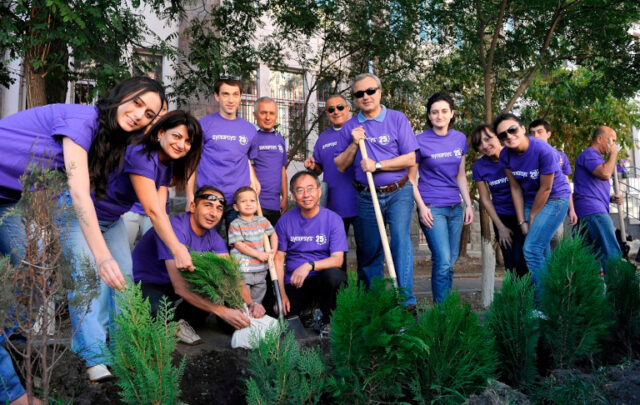I’ll give you the short version. Future Earth is an open, international network of academic research projects focused on transition to a sustainable world. It’s an umbrella organization formed in 2015 to support these projects, foster collaboration between them, and serve as a bridge between the research community and the outside world for 10 years. It’s funded by a consortium of foundations, government agencies, and academic institutions from around the world. There are 22 research projects linked by the knowledge action network in nine areas including the United Nations’ Sustainable Development Goals, and the one I’ve joined, SSCP.
While the individual research projects are the raw materials of Future Earth, the knowledge action network is the connective tissue along with the global secretariat and research hubs in all the major regions of the world. This structure is supposed to give Future Earth the ability to coordinate research across scales, geographies, and disciplines, which is arguably essential to a global transition to sustainability.
The purpose of the workshop was to further develop the SSCP knowledge action network’s research and action agenda and prepare for formal recognition by FutureEarth, which could lead to significantly more support for the research projects. The reason I was invited to join is because Shareable, where I work, has a unique window into new, sustainable ways to consume and produce based on sharing.
Okay, that might not seem like the short version, but trust me, it is. That’s arguably my first lesson — that the scale and complexity of the transition effort is daunting. Future Earth is just one of many efforts, and if you can believe it, it’s trying to create some order from the chaos. But let’s not start there… at least officially. Below are my top three lessons from an intellectually-rich workshop:
1. The social sciences don’t matter much in the sustainability world
The social sciences, which is where the SSCP’s knowledge action network is situated academically, is at the bottom of the hierarchy in the research world, including in the context of transition and climate change. Hard sciences are at the top. They get the large majority of funding and attention. Thus, solutions are highly technical (renewable energy technologies, geo-engineering, carbon taxes, etc.) and largely removed from the average person. Relatively little funding and attention is given to behavioral, social, economic, and political factors. Social scientists are fighting to get a seat at the table. The SSCP’s knowledge action network hopes to put a dent in this deeply embedded institutionalized bias.
2. And that’s a big problem, particularly in cities
The above is a big problem because 70-80 percent of resource use and greenhouse gas emissions come from our choices around buildings, transportation, food, and appliances. Our choices are shaped from a broad institutional context that includes behavioral, social, economic, and political factors. The source of the problem of unsustainable consumption and production can be best understood and addressed by these human factors, because after all, this is a human problem, not a technical one. We are the problem.
The focus on technical solutions is all too often treating symptoms (carbon emissions, use of nonrenewable energy, etc.) rather than causes (us). This has lead the SSCP’s knowledge action network to adopt a “strong view” of SSCP, meaning that deep structural change in society — including culture, policy, and built environment — is required to bring consumption in line with resource limits while promoting equality. With this comes a focus on cities, which are now the primary drivers of consumption and inequality. Technical solutions and behavior change are necessary, but not sufficient. The SSCP’s knowledge action network believes we have to dramatically re-configure how we live and work to get the needed change.
3. We might as well transition to sustainable means because the consumption party is ending anyway
Eva Alfredsson of the Swedish Agency for Growth Policy Analysis, shared a paper at the workshop that revealed a consensus among long-term forecasters that economic growth is going to stagnate if not decline in the 21st century. It undermines some fears about transitioning to sustainable modes — for instance, that if we dramatically reduce consumption, the economy might crash. Well, the economy is probably going to slow significantly anyway because we’re hitting lots of hard barriers like natural resource shortages, demographic changes, growing environmental costs, and more, according to this paper. So, we might as well get on with sustainable production and consumption. There’s nothing to lose.
At the conclusion of the workshop, a representative of Future Earth’s global secretariat praised the SSCP’s knowledge action network for its cooperative nature, which stood out among other networks, especially in the hard sciences. I experienced this, too. The core members of the knowledge action network — Maurie Cohen, Halina Brown, Philip Vergragt, and others — were friendly, encouraging, and genuinely interested in my work at Shareable. I look forward to contributing to the knowledge action network and helping people — and the social sciences — become a bigger part of the efforts to transition to a sustainable world.
Header photo courtesy of Future Earth
This article is cross posted with permission from Shareable.net.





